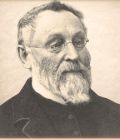LIPPES KEY NOTES & RED LINE SYMPTOMS BY DR. ADOLPH VON LIPPE PART I
COMMON NAME:
SOUTHERN WOOD.
Symptoms
Marasmus of children, with marked emaciation, especially of legs (Iodium, Sanicula, Tuberculinum emaciation of neck-Nat. M., Sanicula). The skin is flabby and hangs loose in folds (A.).
The child is cross and depressed (G.).
RAVENOUS HUNGER; LOSING FLESH WHILE EATING WELL (Iodium, Natrum muriaticum, Sanicula, Tuberculinum) (A.).
Alternate diarrhoea and rheumatism (metastatic rheumatism) (N.).
Alternate constipation and diarrhoea; lienteria (Aloe, Nux-v., Podophyllum, Sulphur). (A.).
Epistaxis, hydrocele or emaciation of little boys (G.).
Numb, weak, tremulous and paretic (B.).
MARASMUS OF LOWER EXTREMITIES ONLY (AMM-M., Argentum nitricum) (A.).
Rheumatism of heart (K.).
Nightly backache (B.).
Child is ill-natured, irritable, cross and despondent; violent, inhuman, would like to do something cruel (A.).
BLOATED ABDOMEN (B.).
Face old, pale, wrinkled (Argentum nitricum, Lycopodium, Opium). (A.).
Darting or twitching in either or both ovaries (G.).
In marasmus, head weak, cannot hold it up (AEth.).
Cutting pains in stomach, gnawing, burning (G.).
Painful contractions of the limbs from cramps or following colic (A.).
Vomits much offensive fluid (B.).
Rheumatism: for the excessive pain before the swelling commences; from suddenly checked diarrhoea or other secretions; alternates with haemorrhoids, with dysentery (A.).
Great weakness and prostration after influenza (G.).
Gout: joints stiff, swollen, with pricking sensation: wrists and ankle-joints painful and inflamed (A.).
Very lame and sore all over (Arnica, Baptisia, Pyrog., Rhus-t., (A.).
Blood and moisture oozing from the navel of new-born children (G.).
Itching chilblains (Agaricus). (A.).
Distended veins on forehead (B.).
Great weakness and prostration and a kind of hectic fever with children; unable to stand (A.).
AGGRAVATION:
In cold air or from getting wet; from checked secretions; in fogs; during night.
AMELIORATION:
From loose stool; from motion.
RELATIONSHIP:
After Hepar in furuncle; after Aconite, Bryonia is pleurisy, when a pressing sensation remains in affected side impeding respiration.

